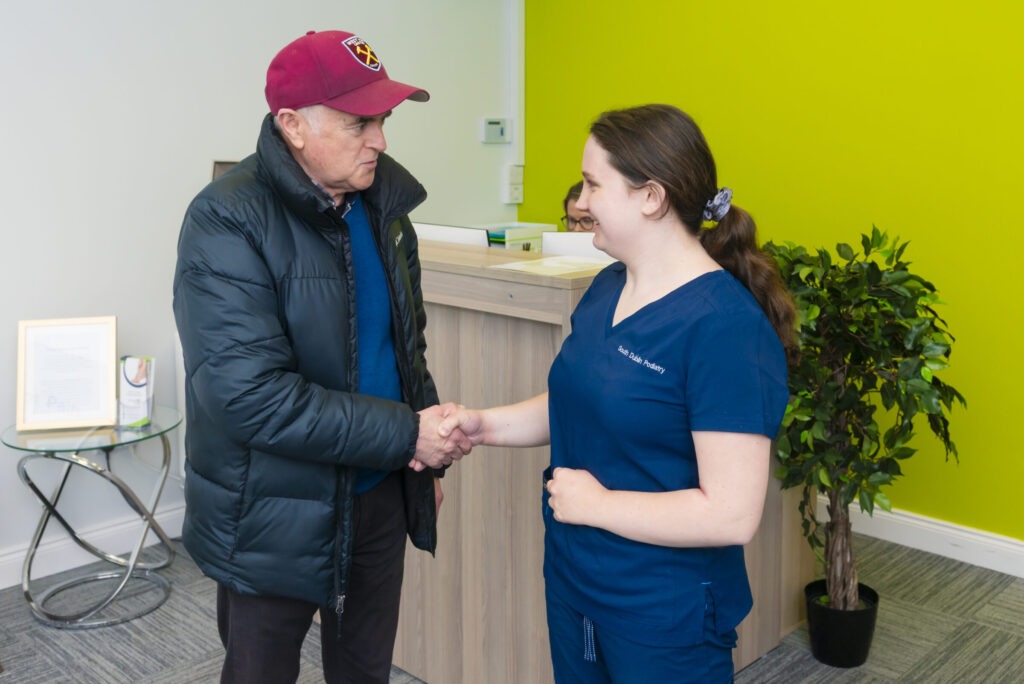




Keeping you active, mobile, and pain-free so you can enjoy life to the fullest.
South Dublin Podiatry is a modern centre which provides expert care, diagnosis and treatment of foot and ankle pain and injuries. Looking after all age groups, we are dedicated to delivering exceptional, patient-centered care that goes beyond treating feet — we support our patients in staying active and mobile through a comprehensive range of services and state-of-the-art facilities and technology.
Our highly trained team will ensure each patient receives a personalised treatment plan tailored to their specific needs that will make a lasting impact on their journey to better foot health.
Fiona BanksTrustindex verifies that the original source of the review is Google. This is a lovely practice, very clean and bright setting, staff are lovely and friendly. Apt was for my 10 yr old and everything from diagnosis, treatment and aftercare was explained very well and Samuel really put us at ease. A very positive and pleasant experience and I would highly recommend them.JULIE O CONNORTrustindex verifies that the original source of the review is Google. Amazing professional care.Mary-Therese McGrathTrustindex verifies that the original source of the review is Google. This is an excellent very professional clinic. Thank you Alice who helped me with a very painful corn. I walked out already feeling much better.Caroline DunneTrustindex verifies that the original source of the review is Google. Excellent service would recommend to everyone.MichaelTrustindex verifies that the original source of the review is Google. The podiatrist Michael was really a pleasure to deal with. He was very knowledgeable but also patient in explaining my diagnosis and treatment plan. Highly recommendedAnfac SharifosmanTrustindex verifies that the original source of the review is Google. I was in south Dublin podiatry today. I was very happy with the service I received. I was Very impressed the kindness they show their patients.thank you so much for your hospitality south Dublin podiatry. The greatest experience I had with podiatries. I couldn’t recommend enough.valerie gavinTrustindex verifies that the original source of the review is Google. Excellent very professional service Spotless clean Was in terrible pain with ingrown toenails Was a bit nervous but chiropodist made me feel so relaxed so gentle booked another appointment to keep my feet right for summer Receptionist very pleasant to deal with Well done south dublin podiatry
We’ve created three well designed 12 month membership plans to help our regular patients stay on top of their foot health—while making it easier to manage costs with monthly payments and enjoy exclusive member-only benefits.
At your consultation, your podiatrist will advise which plan best fits your long-term care needs.
